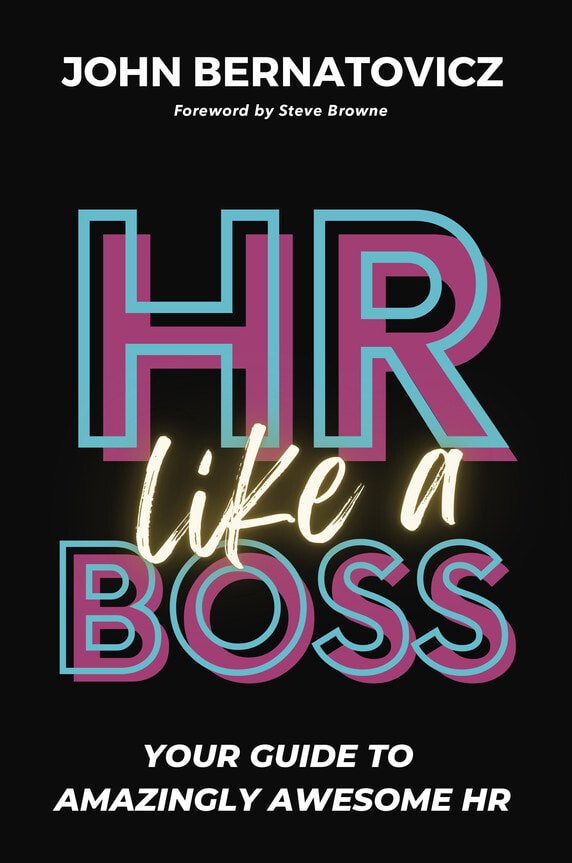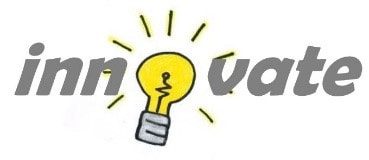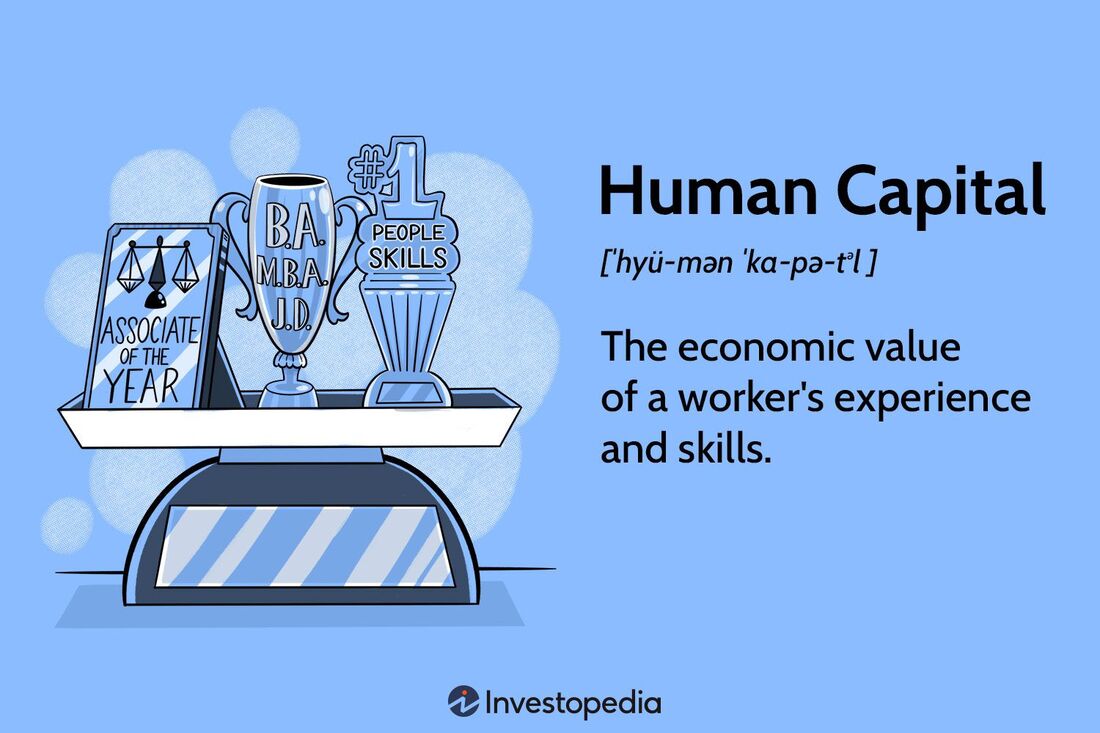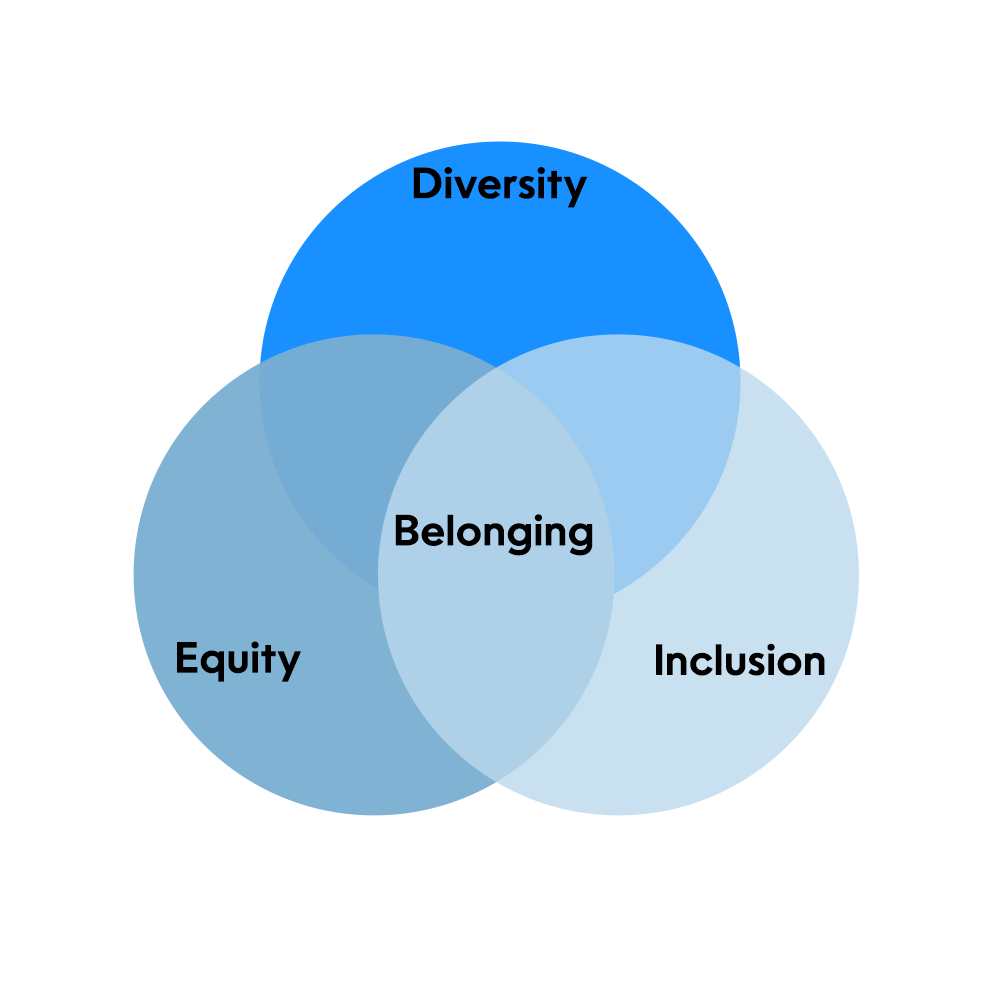|
In a recent conversation with John Bernatovicz, author of "HR Like a Boss", I had the pleasure of engaging in an insightful discussion about the role of HR as strategic leaders and the need for a paradigm shift within our profession. The exchange emphasized the importance of HR professionals stepping up, not just as experts in HR, but as individuals who possess a deep understanding of the organization as a whole. In this blog post, I will explore the key takeaways from our conversation, shedding light on the significance of HR's role in shaping organizational decisions, fostering engagement, and becoming trusted advisors. Embracing a Collaborative Approach: The conversation began by acknowledging that HR has the potential to create a positive ripple effect within an organization. This entails moving away from a directive leadership style and embracing a collaborative approach that focuses on the how rather than simply the what. Instead of imposing HR recommendations, HR professionals should strive to help individuals discover the rationale behind these recommendations, fostering understanding and buy-in. Building trust and establishing oneself as a knowledgeable advisor becomes crucial in a landscape where HR often lacks direct authority. Owning Our Expertise: As the discussion progressed, the importance of HR professionals taking ownership of their impact within the organization became evident. It was emphasized that HR is not limited to the HR department alone; rather, it should be seen as an organization within itself. Recognizing the expertise HR professionals bring to the table and the significant impact they can have on the overall success of the organization is vital. To be effective, HR professionals must immerse themselves in the business, understand its intricacies, and provide sound advice grounded in a holistic perspective. Challenging Traditional Perceptions: Throughout the conversation, there was a shared sentiment of HR professionals yearning to break free from traditional perceptions and stereotypes. External perception of HR can often be negative or misinformed, and it is crucial for HR professionals to address this and actively work towards changing the narrative. By demonstrating their understanding of the business, cultivating strong relationships, and consistently delivering value, HR professionals can challenge these preconceived notions and position themselves as strategic partners. The Rebel HR Mindset: In the Rebel HR flash round, an intriguing question surfaced: "Where does HR need to rebel?" This question sparked a discussion on the importance of breaking free from conventional norms and embracing innovative practices that drive positive change. It was emphasized that HR should rebel against the notion of toxic positivity, acknowledging that challenges and struggles exist and should be addressed authentically. Furthermore, HR professionals should rebel against complacency, continually seeking opportunities to enhance their knowledge, skill set, and impact within the organization. Conclusion: In conclusion, the conversation shed light on the critical role HR professionals play as strategic leaders within organizations. By adopting a collaborative approach, owning their expertise, challenging traditional perceptions, and embracing a Rebel HR mindset, HR professionals can truly make a transformative impact. Let us seize this opportunity to step up, become trusted advisors, and drive positive change that transcends the boundaries of HR. By doing so, we can elevate the profession and contribute to the overall success and well-being of our organizations.
0 Comments
In a recent enlightening discussion, I had the privilege of delving deep into the realms of connection, loyalty, and leadership within the workplace. The valuable insights shared during this engaging dialogue left an indelible impression on me.
Recognizing the Essence of Meaningful Connections: During our conversation, I had the opportunity to express a notion that struck a chord with me. Imagine a profound connection to a higher Source, where the universe's wisdom resonates within you. It's a transcendent experience, akin to witnessing the harmonious alignment of cosmic forces. Can you envision it? That instant of pure inspiration, coursing through your being, offering profound clarity and insight. Navigating the Complexity of Employee Loyalty: We further delved into the intricate aspects of employee loyalty and the elusive question of what truly fosters unwavering commitment. I probed the journey of unraveling this puzzle, inquiring about the initial steps taken in constructing a cohesive and consumable book on the subject. It became apparent that while the world of organizational culture, retention, and loyalty may seem overwhelmingly complex, the underlying principle is, in fact, rather straightforward. Simplicity, however, does not equate to easiness. Striving for the perfect alignment of compensation, workload, and flexibility for every employee remains a challenging endeavor. While there might be skeptics, perpetually searching for the unattainable ideal candidate, it is essential for HR professionals to guide and educate these non-believers on the fundamental concepts at play. Leveraging Individual Strengths: Our dialogue also explored the significance of capitalizing on individual strengths, rather than fixating on weaknesses. Embracing the concept of "soaring with your strengths" versus being hindered by areas of opportunity is a pivotal mindset shift. Crafting job descriptions that align with an individual's capabilities and passions, while avoiding the expectation of a unicorn candidate, is vital. The hiring process should focus on identifying talented, motivated, and engaged individuals who can be nurtured within their respective roles. This approach, reminiscent of Don Shula's philosophy in football, where great athletes were recruited and their positions determined later, has proven successful time and again. It challenges traditional job descriptions and acknowledges the dynamic nature of work in today's society. Prioritizing Humanity in the Workplace: Amidst our thought-provoking conversation, a poignant realization surfaced. As organizations increasingly prioritize efficiency, productivity, and cost reduction, work has become more transactional in nature. However, this transactional approach devoid of human connection erodes employee loyalty and engagement. Consequently, fostering a sense of purpose, aligning personal values with organizational objectives, and emphasizing the holistic well-being of employees emerges as crucial undertakings. Striking a balance between transactional efficiency and meaningful human connections is paramount to building enduring loyalty and commitment. Addressing Socioeconomic Challenges: We also explored the correlation between socioeconomic factors and employee loyalty. Issues such as affordable housing, childcare, and financial stability directly impact an individual's career choices. To ensure employee satisfaction and long-term commitment, organizations must address these challenges by offering fair compensation that enables a decent standard of living. Embracing this responsibility can lead to sustainable business models that prioritize employee well-being and ultimately foster loyalty. Parting Thoughts: The path to unlocking the full potential of employees lies in nurturing meaningful connections, leveraging individual strengths, prioritizing humanity, and addressing socioeconomic challenges. As organizations strive for excellence, integrating these principles into their culture and leadership practices will undoubtedly yield remarkable outcomes. So, let's embark on this journey together and create workplaces that inspire, motivate, and cultivate true loyalty. I've lived that corporate life. I was all about that life. And early on in my career, I was just trying to assimilate, to clip my wings so that I fit in. I was successful at mimicking the people who were in power. But at a certain point, I realized I was just an actor on stage, as opposed to being authentically myself. And I feel like that's a systemic issue. We hire these bright, talented, enthusiastic people, and then we just neuter them, and try to force them into a mold that probably isn't helping us be successful in the first place.
The whole concept of self-managing structures and working on purpose as opposed to a job is fascinating. Everyone listening to this can probably think of a situation where they've seen an employee working that way, but they've got a leader that is not accepting of that manner. So, as we think about this future state of work and management structures, what are those specific aspects of leadership that we need to cultivate and screen for, so that we're set up for success in the future of organization? We started seeing these warning signs four or five years ago when we would have, at that point, considered them idealists who would quit because they just don't feel like they're working on their own personal mission. They feel like the organization's mission is incongruent with what their personal mission is. And they want to work for a company that's helping fulfill their personal intrinsic value set, which is just something I didn't hear 10, 15, or 20 years ago. It's a very different landscape than it used to be. Many HR practitioners are looking for a new way to do the work they're passionate about. Many of them are disenfranchised with the work they've been asked to do over the last many years of their careers. So, as we take a look at HR specifically, what are some specific areas that are just ripe for disruption? Where do we need to start to push back? Sometimes it's just about that incrementalism, where it's just a little bit better yourself every day. Whether that's an interaction with an employee, helping coach a manager, taking a course, reading an article, or just having a conversation with someone about a new idea. At the end of the day, it's all about positive disruption fostering innovation. It's about creating an environment where people can bring their full selves to work and where they can feel like they're making a difference. We need to cultivate leaders who are willing to listen and learn from their employees, who are willing to take risks and try new things, and who are willing to push the envelope to make their organizations better. Only then can we truly create a workplace that fosters innovation and drives success. The term "Human Capital" has been used in the field of Human Resources for decades, but its continued use needs to be scrutinized. While some argue that the term accurately reflects the value that employees bring to an organization, others argue that it is inhumane and devalues the humanity of employees.
The term "Human Capital" is problematic because it reduces human beings to nothing more than resources or assets. It suggests that people are no different from other types of capital, such as financial or physical capital. This view ignores the fact that human beings are unique, complex, and multi-faceted, with individual experiences, backgrounds, and personalities. Moreover, the term "Human Capital" suggests that the value of an employee is solely based on their productivity and output. This narrow view of human value ignores the importance of employee well-being, engagement, and fulfillment. It also disregards the impact that workplace culture, leadership, and organizational practices have on employees' ability to perform at their best. Using the term "Human Capital" also reinforces the idea that employees are disposable or replaceable. It suggests that if one employee is not meeting expectations, they can easily be replaced with another. This view ignores the cost of turnover, the importance of retaining institutional knowledge, and the impact that constant turnover has on morale and productivity. Human Resources should find a new term that reflects the value of employees as individuals, rather than as resources or assets. A more appropriate term might be "Human Potential" or "Human Capacity." These terms acknowledge the unique and multi-faceted nature of human beings and emphasize the importance of investing in employees' potential and growth. In conclusion, the term "Human Capital" is inhumane and devalues the humanity of employees. It reduces employees to nothing more than resources or assets, ignores the importance of employee well-being and engagement, and reinforces the idea that employees are disposable. Human Resources should find a new term that reflects the value of employees as individuals and emphasizes the importance of investing in their potential and growth. Let's talk about diversity, equity, inclusion, and belonging (DEIB). These are some of the most important topics of our time, and they're something that I've been passionate about for years. As a white cisgendered male, I know that I have a lot to learn about this work, but I also know that I'm in a position of power and influence within my organization. That means that I have a responsibility to do what I can to create a more equitable and inclusive workplace. One thing that I've noticed over the years is that a lot of organizations talk about DEIB, but they don't always have a clear focus on outcomes. What are the KPIs? What are the things that we're actually measuring to know if we're making progress? If we've been doing this work for 60 years, why aren't we further along? These are important questions that we need to ask ourselves. I recently had a profound thought about this. What if another department used the same excuse? What if the CEO asked the finance department, "What's our profit for this quarter?" and Finance said, "No, we're just focused on the process." That wouldn't fly in any other boardroom. Why does it fly in the DEI space? We need to be clear about our goals and measure our progress if we want to make real change. One of the things that I appreciate about the work that's being done in DEIB is that it's opening up the dialogue and getting people's minds in the right space. It's giving us pragmatic tools to understand and feel comfortable doing this work. But what about the people who don't understand the importance of DEIB? How do we get through to them? I think it's important to start by understanding who the right audience is. Who is naturally inclined to agree with this perspective, and who is not? Those are the people who probably need to hear it more, even though it might be a little bit more contentious. We also need to be intentional about the outcomes we're trying to achieve. If we don't have an outcome in mind, what are we really doing? So, what are those key outcomes that really matter when it comes to DEIB? One important acronym to remember is ROI: representation, opportunity, and inclusion. We need to focus on increasing representation of marginalized groups in our organizations, creating opportunities for them to succeed, and ensuring that they feel included and valued. But it's not enough to just talk about these outcomes. We need to measure them and hold ourselves accountable. This means collecting data, analyzing it, and making changes when we're not meeting our goals. It also means being willing to have uncomfortable conversations and make difficult decisions. But if we're not willing to do that, we're not really committed to DEIB. In conclusion, DEIB is some of the most important work that we can do as individuals and organizations. We need to be clear about our goals, measure our progress, and hold ourselves accountable. We also need to be willing to have difficult conversations and make difficult decisions. But if we're committed to this work, we can create a more equitable and inclusive world for everyone. Today, I want to dive into an exciting topic that has been capturing my attention lately—the future of talent acquisition and the fascinating impact of generative AI. As someone who is passionate about understanding human behavior, I've come to realize that AI and the intersection of HR is a fascinating field to study. In this blog post, we'll delve into the evolving landscape of talent acquisition and discuss how generative AI is reshaping the way we acquire and manage talent within organizations.
What is Generative AI? Generative AI is a branch of artificial intelligence that focuses on generating new content, such as images, text, or even music, based on patterns and examples it has learned from existing data. Unlike traditional AI models that are designed for specific tasks, generative AI aims to create new and original content that resembles the patterns observed in the training data. Generative AI consists of two main components: a generator and a discriminator. The generator creates new content, while the discriminator evaluates the content generated by the generator and provides feedback. Through an iterative process, the generator learns to produce content that becomes increasingly difficult for the discriminator to differentiate from real data. Generative AI models have gained significant attention and advancements in recent years, enabling the creation of realistic images, coherent text, and even deepfake videos. These models have the potential to revolutionize various industries, including creative arts, marketing, and even human resources, by automating tasks, enhancing content creation, and providing personalized experiences. However, generative AI also raises ethical considerations, such as the potential for misinformation, fake content, and privacy concerns. Ensuring responsible and ethical use of generative AI technologies is crucial to mitigate these risks and harness its potential for positive impact. Unveiling the Potential The more I immerse myself in the HR field, the more I realize how little I truly understand about human behavior. It's a never-ending learning process. However, one aspect that has truly piqued my interest is the intersection of technology and talent acquisition. Recent headlines have been buzzing about potential recessions and layoffs, but what really caught my attention is the emergence of generative AI. This technology has the potential to be a game-changer, revolutionizing the way we approach talent acquisition and human resources. A Glimpse into the Future As I ponder the future of work and its impact on talent acquisition, one aspect stands out—the structural transformation of how we acquire talent within organizations. The rapid development of generative AI introduces an intriguing dynamic to this landscape. Its ability to generate responses and ideas without explicit training is truly fascinating. In fact, it often surprises me with insights and perspectives I hadn't even considered. This raises an important question: Could generative AI, with its inherent lack of bias (arguably), actually outperform humans in selecting the right candidates for roles? We all like to assume we are expert "Pickers" of talent, but as humans, we are inherently choosing candidates from our context of the world. Can AI help us improve and eliminate biases from our systems? My thesis is "yes, given the right circumstances". Unleashing the Power of Communication When I reflect on the implications of generative AI, I can't help but consider its potential influence on communication. Grammar and traditional writing norms may take a backseat as we prioritize efficient and effective content delivery. As an HR professional, I find this shift intriguing. It opens up opportunities to communicate with diverse audiences in their own language, overcoming barriers and fostering stronger connections. Just imagine the impact of generative AI in translating and tailoring messages to local groups within our international organizations—it's a game-changer! Adapting to Change Embracing technological advancements and adapting to change is crucial for HR professionals. The talent acquisition landscape is evolving rapidly, and we need to be at the forefront of this shift. As professionals in people-centric roles, we must educate ourselves about generative AI. It's not a passing fad—it's a tool that has the potential to empower us and enhance our effectiveness. Yes, there may be ethical discussions and identity crises along the way, but by embracing this transformation, we position ourselves for success in a rapidly changing environment. In this ever-evolving world, where technology continues to reshape the way we work, HR professionals must remain open-minded and proactive. Generative AI offers incredible potential to optimize our processes, overcome biases, and enhance communication within our organizations. So let's stay informed, embrace the changes, and leverage technology effectively. By doing so, we position ourselves as forward-thinking HR professionals ready to embrace the future of talent acquisition with confidence. Let's embark on this exciting journey together! |
About The BlogAre you tired of the same old boring advice about how to succeed in your career? Do you feel like you're stuck in a rut and can't seem to break free? If so, then you need to check out our blog! Our blog is all about thinking differently when it comes to the world of work. We don't just regurgitate tired old advice - we bring you fresh insights from our own careers and from interviews with experts on our podcast, Rebel HR. So if you're ready to shake things up and start approaching your career in a new way, then our blog is a must-read. Don't settle for mediocrity - join us and let's revolutionize the world of work together! Archives
October 2023
Categories
All
|






 RSS Feed
RSS Feed
